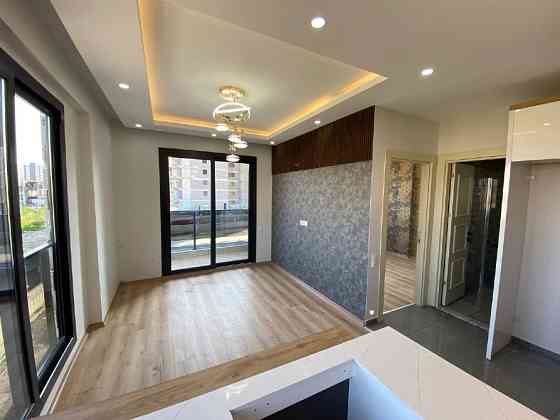
Life in Portugal — how to avoid problems with registration and legalization
Portugal is a country that wins the hearts of many foreigners with its picturesque landscapes, rich history, delicious cuisine and measured way of life. It is not surprising that more and more people decide to move here for permanent residence or buy property for seasonal holidays. However, in order for life in Portugal to be truly comfortable and carefree, it is necessary to understand the rules for legalizing your stay in the country and, first of all, the procedure for registering at the place of residence (registration). In Portugal, as in many other European countries, the legal residence of a foreigner begins with registration at the place of residence (Port. «registration de residência»). Registration is not just a formality, but a necessary condition for receiving many government services and exercising your rights. Without it, it is impossible to:
- Obtain or renew a residence permit (RP) or permanent resident status (PR);
- Obtain a tax number (NIF) and open a bank account;
- Enroll children in school or kindergarten;
- Get access to free healthcare and social benefits;
- Get legal employment;
- Register a car or obtain a Portuguese driver's license;
- Participate in local elections (for residents).
In addition, having an official residence permit is proof that you actually live at the specified address and comply with Portuguese law. If it turns out that your registration is fictitious or expired, this can lead to serious problems, including the cancellation of your residence permit, fines, and deportation from the country.
How to legalize your stay in Portugal
- In order to legally stay in Portugal for more than 90 days within six months, a foreigner must obtain a residence permit (RP). There are several types of RP depending on the purpose of stay: work RP (if there is a contract with a Portuguese employer); RP for students and scientific researchers; RP for family reunification; RP for freelancers and remote workers; Residence permit for wealthy people (when buying real estate, investing or having a stable passive income).
- The most popular option for those who plan to move to Portugal for a long time or permanently is a residence permit for passive income (Portugal Passive Income Visa or D7). It is suitable for freelancers, remote workers, rentiers and retirees who can prove a stable income from abroad in the amount of at least the Portuguese minimum wage for the applicant and half of this amount for each family member.
- To apply for a residence permit, you must provide the Portuguese Immigration Service (SEF) with a package of documents, including: a valid passport; a certificate of no criminal record; proof of health insurance; proof of financial solvency; a long-term lease agreement or documents of title to real estate in Portugal.
Install our app and get all the tools you need to search for real estate abroad in your smartphone! The mobile application will allow you to quickly access your personal account, manage your favorite properties and track your requests, directly exchange messages with sellers and buyers.

Residence registration procedure
- As soon as you have decided on a place of residence in Portugal (bought real estate or entered into a long-term lease agreement), you must register with the local municipality (Câmara Municipal) or parish council (Junta de Freguesia). To do this, you will need: a passport; proof of legal residence status (residence permit or visa); a lease agreement or title deed for housing; tax number (NIF). The registration procedure usually takes no more than a week. After that, you will be issued an official certificate of residence (Atestado de Residência), which will be valid for 3 months. This document must be presented when applying to various authorities as proof of address.
- The registration procedure itself is free in Portugal, but a small fee (10-15 euros) may be charged for issuing a certificate of registration (Atestado de Residência) in some municipalities. However, the main costs are associated with renting or buying housing that will meet the requirements of the immigration service.
- Unfortunately, many foreigners do not fully understand the consequences of non-compliance with the registration rules or try to save money by indicating a fictitious address or negotiating with local residents for fictitious registration. It is worth remembering that portugalPortuguese authorities are actively combating the so-called «ghost residence» and carefully check the authenticity of the data provided. If it turns out that a foreigner does not actually live at the specified address or has provided forged documents, he faces: a fine of 400 to 4,000 euros; cancellation of a residence permit or refusal to extend it; deportation from the country with a ban on entry to Portugal and other Schengen countries for up to 5 years. Therefore, it is strongly recommended to play by the rules and promptly notify the migration service and local authorities of a change in actual place of residence.
How to extend a residence permit and obtain permanent residence in Portugal
- To maintain your legal status in Portugal, you must renew your residence permit in a timely manner. To do this, you must contact the Migration Service (SEF) no later than 30 days before the expiration of your current residence permit and provide an updated package of documents, including: a valid passport; proof of residence at a registered address (lease agreement or property documents); proof of a stable income or funds in a bank account; valid health insurance; a certificate of no outstanding taxes and fees.
- If you have lived in Portugal legally and without long interruptions for 5 years, you have the right to apply for permanent resident status (PR) or immediately for citizenship. The main requirements for this are: legal and continuous residence in the country for at least 5 years; no serious violations of the law or problems with law enforcement agencies; a stable source of income or sufficient funds for living; basic knowledge of Portuguese (confirmed by the CIPLE A2 certificate).
- The cost of applying for and extending a residence permit in Portugal depends on the type of status requested and the number of family members included in the application. On average, the official fees are:
- for the initial registration of a residence permit — from 100 to 300 euros per person;
- for extending a residence permit — from 60 to 200 euros per person;
- for applying for a permanent residence permit — about 250 euros per person;
- for applying for citizenship — 250 euros per application and 175 euros for each child.
- In addition to the official fees, you must take into account the costs of translating and legalizing documents, medical insurance, a certificate of language proficiency, and the services of intermediaries (if you decide to use them).
Useful tips for those planning to move to Portugal
- Start learning Portuguese in advance. Even a basic knowledge of the language will greatly facilitate your adaptation and communication with local residents and authorities.
- Choose your area of residence carefully. Consider not only the cost of renting or buying real estate, but also infrastructure, transport accessibility, the presence of schools and medical facilities nearby.
- Take care of health insurance. Without it, you will not be able to obtain a residence permit, and treatment in Portugal for foreigners without insurance can be very expensive.
- Deal with tax issues. Get a tax number (NIF) and figure out what taxes and how much you will have to pay in Portugal depending on your status and sources of income.
- Do not delay with paperwork. Remember that many procedures (for example, enrolling in a school or kindergarten) require a valid residence permit and a social security number.
- Be prepared for bureaucracy and not always a fast pace of government agencies. Be patient and do not be afraid to ask for help from more experienced expats or locals.
- Get to know the culture and traditions of Portugal, travel around the country, try the local cuisine and wine. The more you integrate into the local community, the more comfortable you will feel in your new place.
To sum up, despite all the bureaucratic procedures and hassles, legalizing your stay in Portugal is not a difficult quest, but a completely solvable task. It is enough to act in accordance with the law from the very beginning, promptly notify the authorities of all changes, be patient and not be afraid to seek help from qualified specialists. Then life in this beautiful country will bring you only joy and pleasure! Portugal is a country with a rich history, wonderful climate, picturesque nature and friendly people. Make your move here a conscious and carefully planned step — and you will not regret your choice! We wish you good luck and see you in sunny Portugal!
 20
20
 55
55  2
2  1
1  1
1  12
12  11
11
 6
6
 20
20
 60
60  2
2  1
1  1
1  7
7 
Life in Portugal attracts many foreigners, but it is important to understand the rules of registration at the place of residence (propiska) and the possible consequences of non-compliance. In this article, we will look into the nuances of legalizing stay in Portugal, the requirements for temporary and permanent residence permits, and also give advice on adaptation in the country.

Indonesia is a country of a thousand islands, vivid contrasts and amazing opportunities. In this article, we will analyze in detail all the pros and cons of living in Indonesia for expats and tourists. You will learn about the climate, culture, cost of living, as well as opportunities for work, business and education.

In 2025, the rental market in Germany is undergoing major changes. Tightening energy efficiency requirements, a reform of the social benefits system, the possible abolition of controversial fees and growing demand against a backdrop of limited supply are all creating a new reality for tenants and landlords. We look at the causes, consequences and prospects for these changes.


























